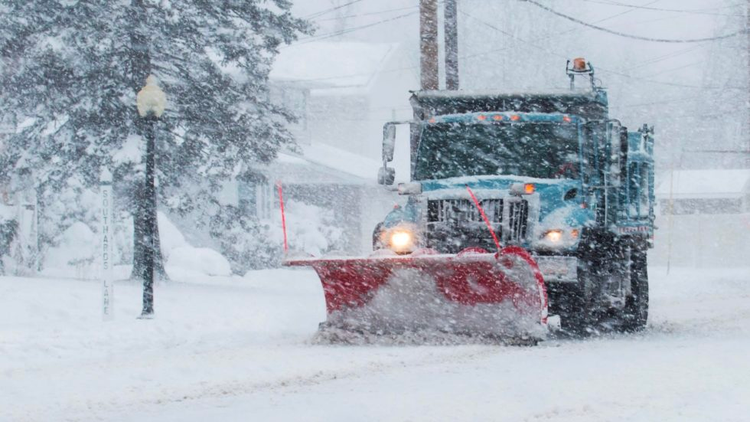
Winter Weather
Winter storms can range from freezing rain or ice to a few hours of moderate snowfall, to a blizzard that lasts for several days. Many winter storms are accompanied by dangerously low temperatures, power outages, and unpredictable road conditions.
Before, during, and after a winter storm, roads and walkways may become extremely dangerous or impassable. Access to critical community services such as public transportation, child care, healthcare providers and schools may be limited. Preparing your home, car, and family before cold weather and a winter storm arrives is critical.
- During a winter storm, stay off the roads as much as possible and only drive when absolutely necessary. Always give snow plows the right of way.
- Never use a generator, grill, camp stove or gasoline, propane, natural gas, or charcoal-burning device inside your home, garage, basement, crawlspace, or any other partially enclosed area.
- Snow shoveling is a known trigger for heart attacks! Always avoid overexertion when shoveling.
- When severe weather occurs, plan to check on elderly or disabled neighbors and relatives.
- If you must travel, know the road conditions before you leave home. Visit 511Virginia.org or call 511 for road condition updates.
- Protect yourself from frostbite! Hands, feet, and face are the most commonly affected areas so wear a hat, and mittens (which are warmer than gloves) and cover your mouth with a scarf to reduce heat loss.
- Keep dry! Change out of wet clothing frequently to prevent a loss of body heat.
- Wear several layers of loose-fitting, lightweight, warm clothing rather than one layer or heavy clothing.
Winter Storm Watch – BE AWARE
Severe weather such as heavy snow or ice is possible in the next day or two.
Winter Storm Warning – TAKE ACTION
Severe winter conditions have either begun or will begin soon in your area.
PREPARE YOUR HOME
- Make sure your home is properly insulated
- Check the weather stripping around your windows and doors
- Learn how to shut off water valves in case a pipe bursts
- Have additional heat sources on hand in case of a power outage
- Keep a fire extinguisher accessible
- Replace the batteries in your carbon monoxide detector annually
PREPARE YOUR CAR
- Batteries lose power as temperatures drop, be sure to have yours tested
- Check your car’s antifreeze level
- Have your radiator system serviced
- Replace your car’s windshield wiper fluid with a wintertime mix
- Proactively replace your car’s worn tires and wiper blades
- To help with visibility, clean off your car entirely – including your trunk, roof, windows, and headlights
INCLUDE A CAR EMERGENCY KIT
Tailor your winter car emergency supply kit to you and your family’s needs. Here are suggested items:
- Blankets
- Drinking water and snacks for everyone in the car, including pets
- Boots
- Basic first-aid kit
- Warm coat and insulating layers (sweatpants, gloves, hat, socks,)
- Rags, paper towels, or pre-moistened wipes
- Basic set of tools
- Car emergency warning devices such as road flares or reflectors
- Ice scraper/snow brush
- Jumper cables/jump pack
- Fire extinguisher
- Cash
- Items for children such as diapers, baby wipes, toys, etc.
- Flashlight, with extra batteries
- Hand warmers
- Paper map
- Portable smartphone power bank
- Extra medication
- Garbage bags
- Traction aid such as sand, salt or non-clumping, cat litter
- Tarp, raincoat, and gloves
- Shovel
DID YOU KNOW?
- Dehydration can make you more susceptible to hypothermia
- If it’s too cold for you, it’s too cold for your pet! Don’t leave pets outside for prolonged periods of time and have plenty of fresh, unfrozen water on hand
- It can snow at temperatures well above freezing
- Temperatures do not have to be below zero degrees to cause harm
MORE RESOURCES:
- FEMA’s Ready campaign: https://www.ready.gov/winter-weather
- National Weather Service: https://www.weather.gov/wrn/winter_safety